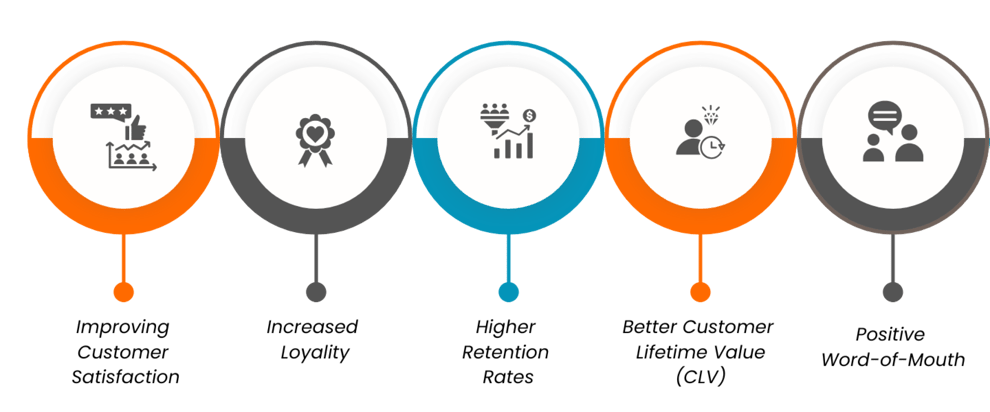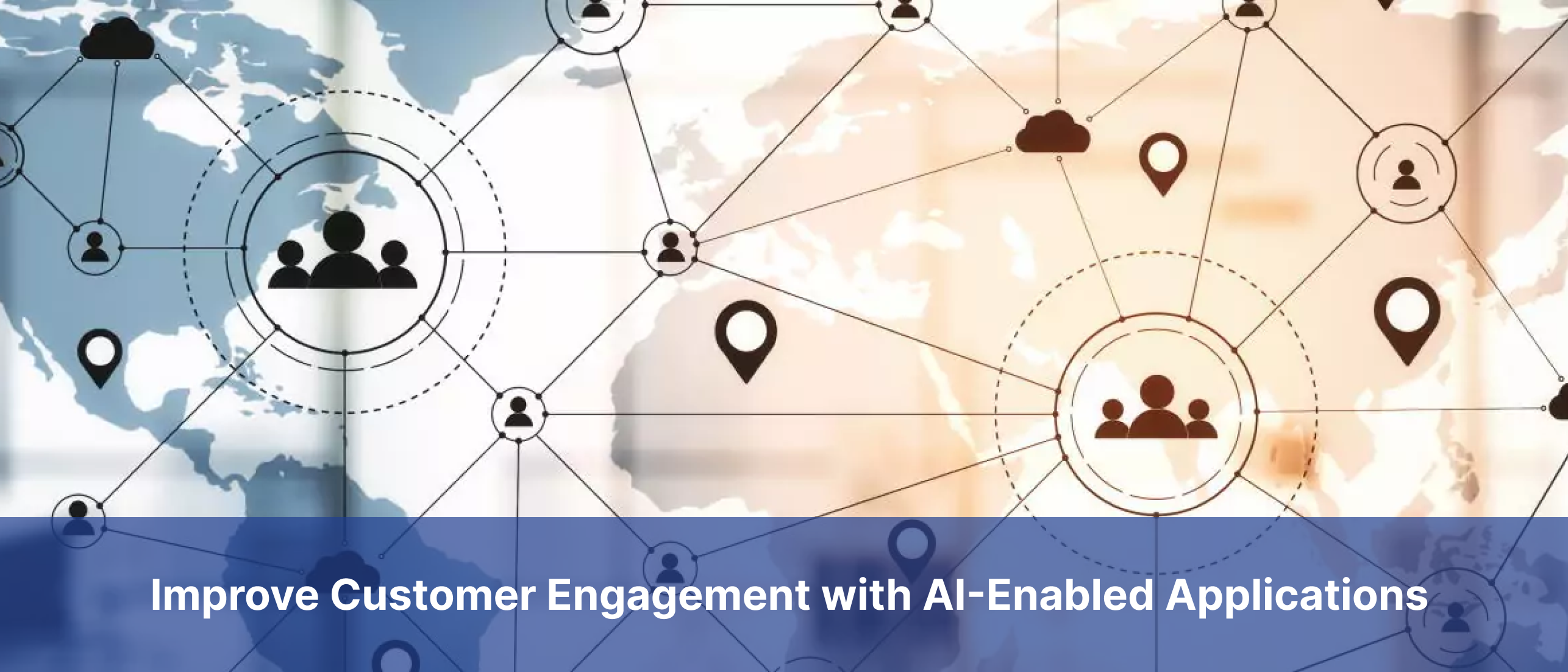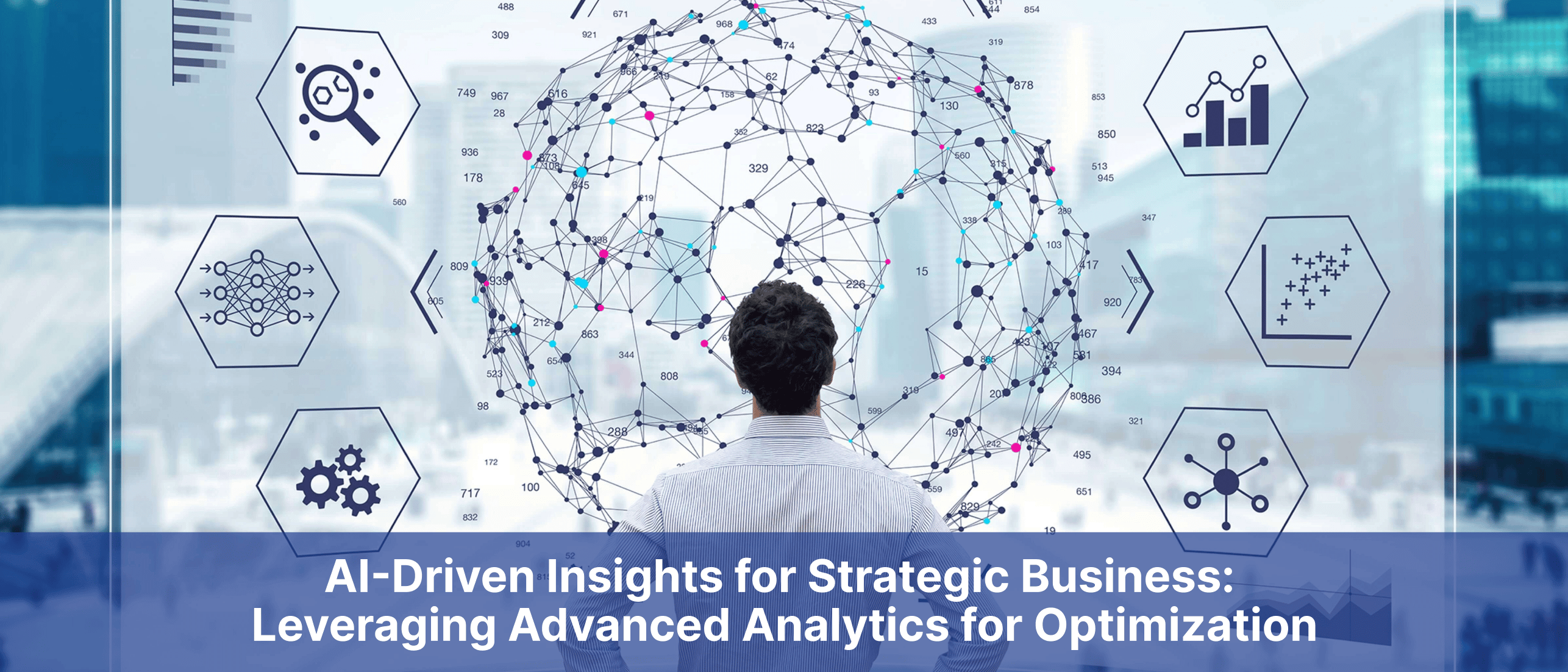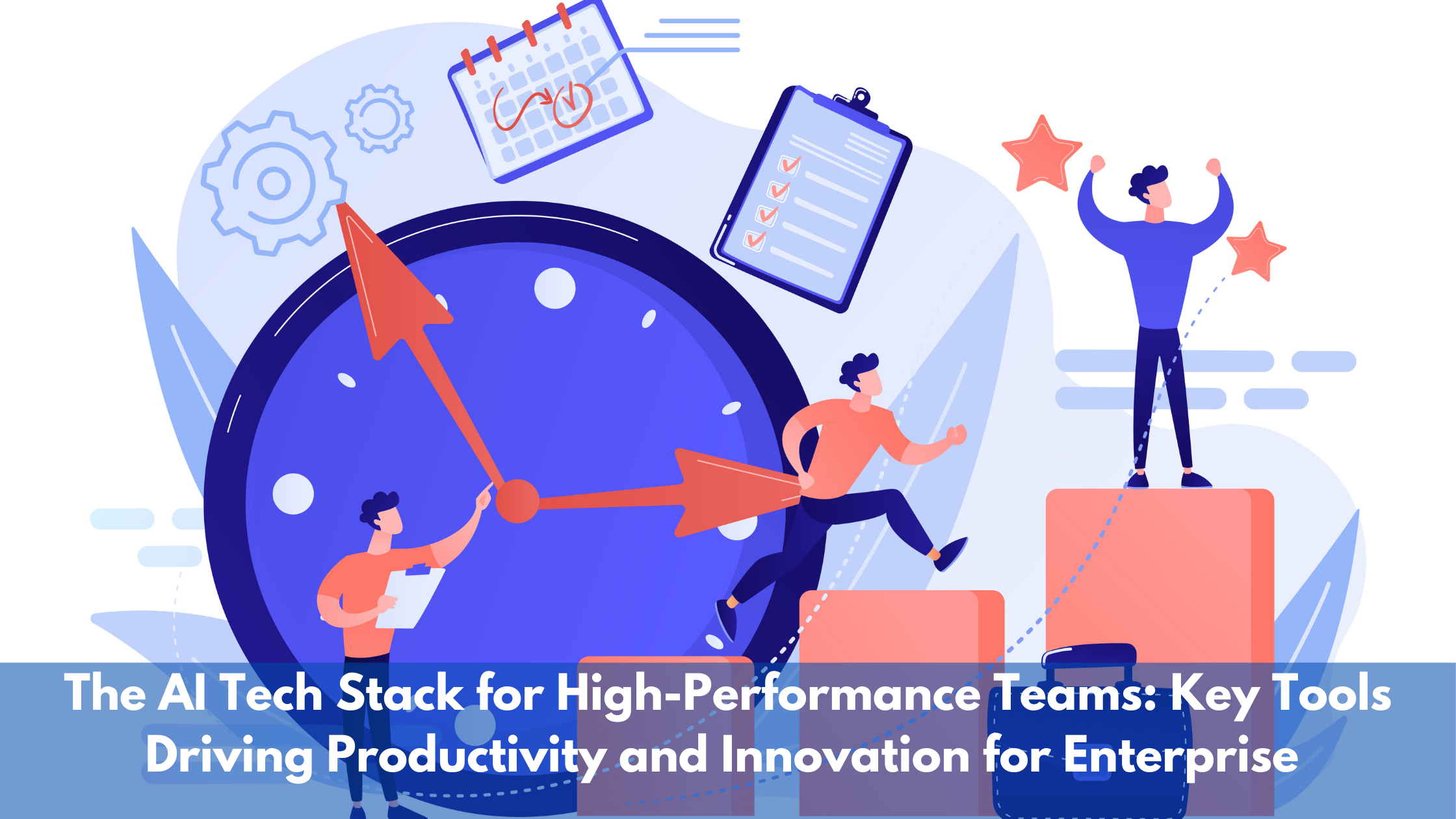The Evolution of AI-Enabled Applications to Drive Customer Engagement

AI for Customer Engagement: Key Considerations

- Personalized Interactions: AI analyzes customer data to recommend custom-made products, targeted marketing campaigns, and relevant content based on user habits. For example, streaming services suggest shows according to the viewer's habits, while e-commerce sites suggest dynamic product recommendations.
- AI-Powered Chatbots: Integrating AI-powered chatbots that understand customer inquiries and respond accordingly in real-time. Implement virtual assistants that can handle routine inquiries, provide instant support, and engage in natural conversations with customers 24/7, improving accessibility and response times.
- Predictive Analytics: Predictive analytics permits customer data analysis, with opportunities to proactively address sources of pain, personalize offers, and optimize marketing impact. Companies can use machine-learning algorithms to predict client behavior, enabling proactive outreaches and providing services before issues occur.
- Sentiment Analysis: The technology enables businesses to comprehend customers' attitudes and identify areas for improvement. Businesses can personalize interactions by leveraging AI-powered sentiment analysis to create an engaging experience. Companies can measure sentiment in real-time by continuously monitoring feedback and making timely adjustments to products and services to enhance customer satisfaction and loyalty.
- Omnichannel Engagement: It allows easy switching between channels and wraps the interaction seamlessly across each touchpoint. Ensure a holistic experience on any channel: social media, email, chat, or phone. Personalize web pages and emails that dynamically adapt to a customer's real-time behavior and profile for enhanced engagement and satisfaction.
Benefits of AI-Enabled Applications for Customer Engagement

AI-powered applications can dramatically boost customer satisfaction, loyalty, and business growth over time. Through leveraging such sophisticated technologies, a company can make interactions more customized, efficient, and effective with customers. These are some of the essential advantages:
- Improving Customer Satisfaction: Customers feel valued and heard by delivering personalized and prompt responses, significantly boosting satisfaction. With AI-driven tools such as chatbots, virtual assistants, and predictive analytics, businesses can respond instantly to customer inquiries and concerns. AI also helps anticipate customer needs, offering solutions before issues arise.
- Customer Loyalty: AI helps companies provide highly personalized experiences that resonate with individual customer preferences, thus deepening emotional connections. Predictive models identify at-risk customers and engage them with proactive offers, special deals, or tailored communication to reduce churn. AI fosters long-term loyalty by delivering consistent, relevant experiences.
- Operational Efficiency: By automating repetitive tasks such as answering FAQs or processing routine service requests, AI frees human resources to focus on more complex customer issues. This reduces response times, optimizes workforce allocation, and drives down operational costs while maintaining a high level of service.
- Sales Conversion: AI-based applications can monitor customer behavior and suggest personalized products or services, increasing conversion chances. Tools like recommendation engines and dynamic pricing algorithms help businesses present the right offer at the right time, resulting in higher sales and revenue. AI identifies up-sell and cross-sell opportunities, enhancing the customer journey.
- Data-Driven Decision-Making: AI systems can process large amounts of customer data to generate real-time insights. This helps businesses make relevant decisions regarding marketing, product development, and customer service strategies. Understanding patterns and predicting future trends is what AI does to help businesses create more effective, data-driven engagement strategies that drive growth.
Companies use these advantages to improve customer experiences, make them more efficient, and increase brand loyalty, thereby leading this new digital engagement revolution.
The Impact of AI-Enabled Applications on Customer Experience Management

Challenges to Consider
Success in any organization requires entrepreneurs to overcome some key obstacles associated with AI-driven customer engagement. It starts with protecting customer data, preventing AI model bias, and other characteristics that pose pitfalls and improper ethics. Some of the key obstacles include the following:
Data Privacy Concerns
It is essential to ensure that customer data collection, storage, and use are responsible; GDPR, CCPA, and other regulations require careful observance. A proper data privacy policy stating how data is collected, stored, and used must be established. Businesses must have adequate encryption protocols, frequent audits, and anonymize any sensitive data against their clients. Second, transparency plays a very important role—firms must inform their customers of the data practices and obtain clear consent before collecting information. A good investment in decent data protection measures will lead companies to build trust and foster customer loyalty.
Algorithm Bias
AI models are only as good as the data on which they are trained; if not managed well, this can be fed back and even amplified into successful discriminatory outcomes. To mitigate this, businesses should include diverse and representative data sets during training to minimize bias. Regular auditing and continuous testing of algorithms are vital in detecting the potential issue early enough before it wreaks havoc. Multidisciplinary teams comprising ethicists, data scientists, and domain experts will further ensure the comprehensive nature of ensuring that AI-driven solutions are fair and inclusive. Committing to these practices will help companies promote equitable technology and protect their reputation.
Technical Implementation
Integrating AI technology with existing systems can be complex. Ensuring a seamless user experience and minimizing disruptions requires careful planning, sufficient technical expertise, and a robust infrastructure.
Conclusion
Integrating AI-enabled applications to enhance customer engagement is no longer optional—it is essential for businesses looking to stay competitive and build long-term customer relationships. Businesses can create seamless, responsive, highly tailored experiences that anticipate customer needs and drive satisfaction by leveraging tools such as predictive analytics, AI-powered chatbots, and dynamic personalization.
To succeed, companies must also address challenges like data privacy and algorithm bias with a commitment to ethical practices and robust data protection strategies. Proper implementation requires thorough planning, technical expertise, and a customer-centric approach.
AI-enabled applications allow your business to optimize engagement, boost loyalty, and enhance operational efficiency. Embrace this shift to position your brand at the forefront of digital innovation and growth.
At Evermethod, Inc., we help create and integrate custom AI solutions to meet your unique business goals. Contact us today to discover how we can help you harness the power of AI for a more connected and impactful customer experience.
Get the latest!
Get actionable strategies to empower your business and market domination
.png?width=882&height=158&name=882x158%20(1).png)

.png/preview.png?t=1721195409615)

%2013.png)


